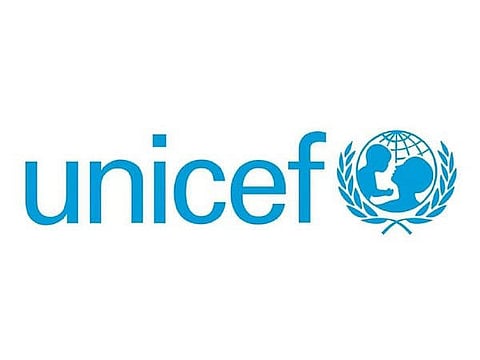

India could become the country with the highest number of overweight and obese children within the next decade if urgent action is not taken, warned Marie-Claude Desilets, Chief of Nutrition at UNICEF India.
Speaking to the media about UNICEF’s Child Nutritional Global Report 2025, Desilets highlighted the urgent need for policy-level interventions to tackle the growing obesity crisis. She emphasised that one of the most crucial steps is introducing a front-of-pack nutritional label (FOPNL), which the Food Safety and Standards Authority of India (FSSAI) is currently developing.
“We are waiting for FSSAI’s decision on the front-of-pack labelling. That will be one step ahead in battling overweight and obesity rates in the country,” — said Desilets. She called the move “a very, very good” step for the government to endorse and make mandatory, adding that India could become a global frontrunner in childhood obesity prevention. “Why can’t India be the frontrunner? You have all the opportunity. Your obesity and overweight prevalence rate is still a bit low, so you’re lucky, but it won’t last long. India can do it, be the frontrunner, and lead by example,” she said.
According to UNICEF, India could have over 27 million children and adolescents (aged 5–19) living with obesity by 2030, representing 11% of the global burden.
Desilets warned that if preventive measures are not put in place soon, India could top the global charts for childhood obesity within a decade.
“We need to encourage the government to take it seriously and take action. If measures are not put in place, at some point, India could have the highest number of children with overweight and obesity in the world. Maybe, in the next 10 years...” she cautioned.
Desilets urged the government to:
Introduce mandatory front-of-pack nutrition labelling (FOPNL)
Regulate marketing of unhealthy foods to children
Impose health taxes on ultra-processed foods
Equip young people with nutrition literacy and healthy eating skills
She stressed:
“You have the political will, and you have opportunities. Front-of-pack labelling is one thing. There are many other things that the government can do.”
The Supreme Court of India has already directed FSSAI to finalise regulations to make FOPNL mandatory on packaged foods to help consumers identify foods high in sugar, salt, and fat—key drivers of obesity and lifestyle-related diseases.
Civil society groups like the Nutrition Advocacy in Public Interest (NAPi) have also urged the FSSAI to base these regulations on scientific evidence and public health interests, not commercial pressures.
Desilets highlighted that India is already facing a triple burden of malnutrition—
Stunting and wasting
Micronutrient deficiencies
Rising obesity
“India has a unique opportunity to act now to prevent overweight and obesity in children,” she said.
She also recommended that India:
Levy taxes on unhealthy foods
Support farmers producing healthier alternatives
Ban sponsorships and advertising of unhealthy foods during sports, concerts, and children's peak TV hours
“In many countries, this is banned… We need to find ways for the companies not to reach children and the population at such events and spots,” she added.
Desilets acknowledged India’s positive steps, including:
Fit India Movement
Eat Right India campaign
POSHAN Abhiyan 2.0
School health and wellness programmes
Awareness boards on sugar and oil usage in schools and offices
She also cited Narendra Modi’s call from the Independence Day address to reduce cooking oil consumption by 10%, noting that even small shifts can make a big public health difference.
“Some measures have been taken, some are on the way, but still more work is needed,” she said.